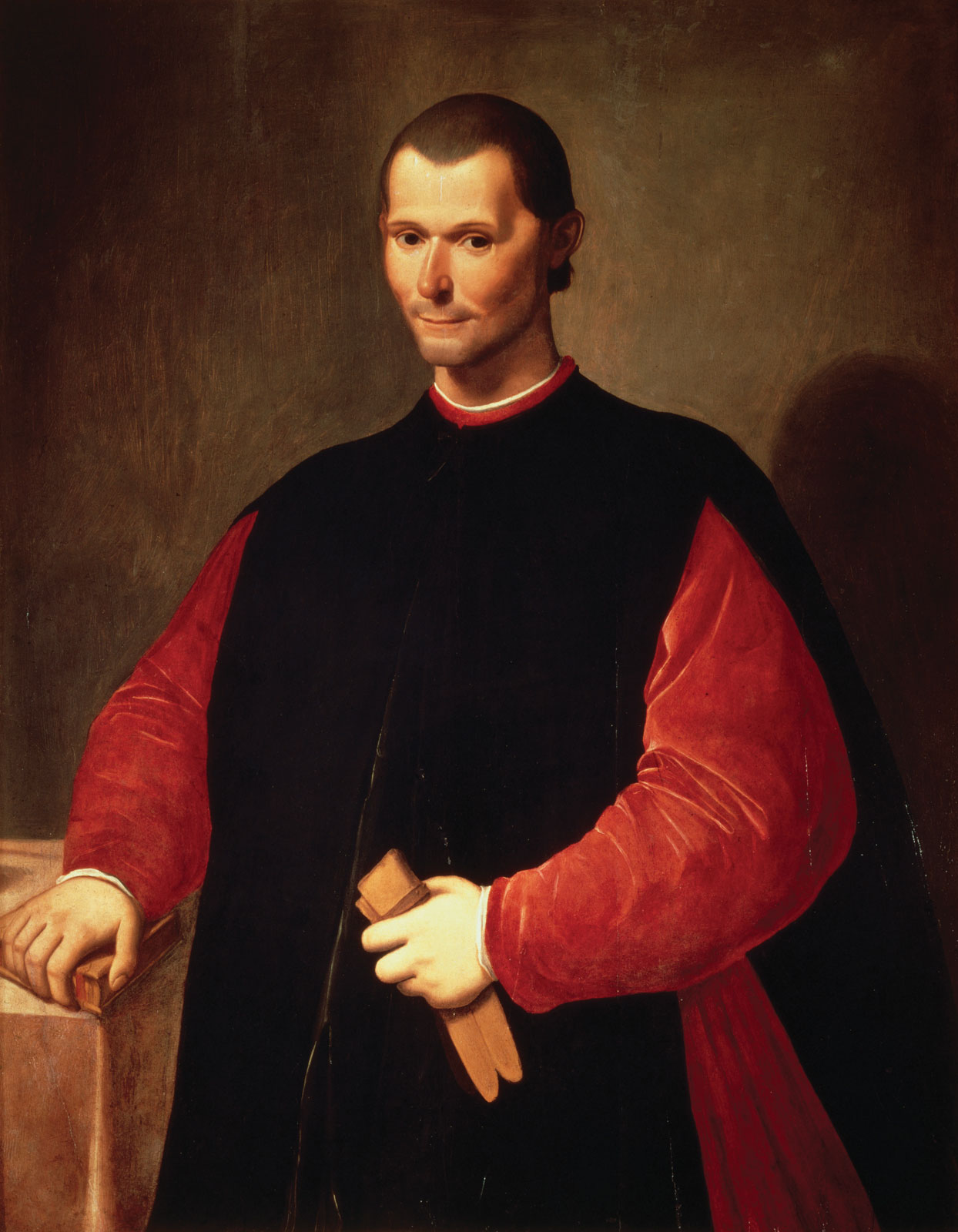Niccolo Machiavelli, an Italian, wrote a book called The Prince. It is dedicated very ingratiatingly to Lorenzo Di Piero De Medici. Machiavelli outlines, very confidently, how a ruler should behave in his or her role over their people. He argues that the ruler needs to act with the end goal in view while using any means necessary to achieve that goal. Keeping power is Machiavelli’s main goal imputed to a Prince. This is no Utopia, but is Machiavelli’s observations and recommendations for the real world filled with real human vices.

Reading Assignment
High Schoolers can read The Prince for themselves. It is not difficult to understand in modern translations and each chapter is very short and very straightforward. If you want to focus on one chapter try one of these:
- Chapter 1: Explains the premise that there are only two types of Government: republics and princedoms. Only one paragraph long, debate the premise.
- Chapter 9: Explains how a Prince should behave if he takes over a republic. Debate whether power should rest on the people or the ruling class.
- Chapter 10: explains the best way to defend a state from outside attack. Debate whether a prince should defend the entire country or only the cities and strongholds.
- Chapter 16: A prince can be either miserly or liberal (economically speaking) and which he is depends on circumstances. Debate the statement that a Prince should be liberal with other people’s property.
- Chapter 17: A prince has to choose between being feared and being loved. Debate which the Prince should choose (or debate the premise, does the Prince really have to choose and are these the only two choices?)
- Chapter 18: A prince should keep his promises only when it is convenient. Debate whether this is so.
- Chapter 23: Only a very few people should be allowed to speak freely with criticism of the prince or with advice to the Prince. Debate whether this rule applies in a republic as well as in a Princedom.
You can print out the chapter guide and debate questions for The Prince.
Debate
Have a debate with kids assigned to each side of the question. You can keep it informal or use formal debating rules. Before you begin you should review at least some of the more common fallacies of logic:
- Appeal to Law: Law is touted as a moral authority
- False dilemma: Where only two possible choices are admitted when in fact there are more.
- Is-ought Problem: because something is therefore it ought to be
- Naturalistic: because something is natural or pleasant or common it is therefore right
- Negative Proof Fallacy: if a premise or conclusion cannot be proven right it must be wrong or vice versa
- Proof by example: because one example can be found therefore this applies to all
- Red herring: a speaker introduces a new topic to avoid discussing the first
- Ad hominum: attacking the person instead of the argument
- Argumentum ad Populum: an argument is true because so many people believe it to be true
- Appeal to emotion: Emotional responses rather than logic are used to “win” an argument
- Chronological snobbery: The present is more advanced or more enlightened than the past
Kids can prepare for their debate by making notecards with their main arguments on them. A moderator should ask a question and then each side gets to reply and respond to the other side.
Additional Layers
- Machiavelli lived in Florence during the Italian Renaissance. Learn more about the Renaissance and Lorenzo de Medici.
- Utopia, written by Sir Thomas More, was a fanciful perfect society and also an easy read.
- Learn more about logical fallacies. There are many more than written above.
- Make up your own list of rules a good leader should follow. You have to decide first what the goal of a “good” leader is.
- Discuss some leaders from history: George Washington, King George III, the current President, Hitler, and so on. How do they stack up against Machiavelli’s perfect Prince? Does it matter which type of government they rule over; a princedom or republic?
- This discussion is from Unit 2-19 of the Layers of Learning Curriculum.
Get a Free Unit
Choose between the first unit in each Layers of Learning subject to try for free when you sign up for the newsletter.
We never spam and you can cancel your subscription at any time.


